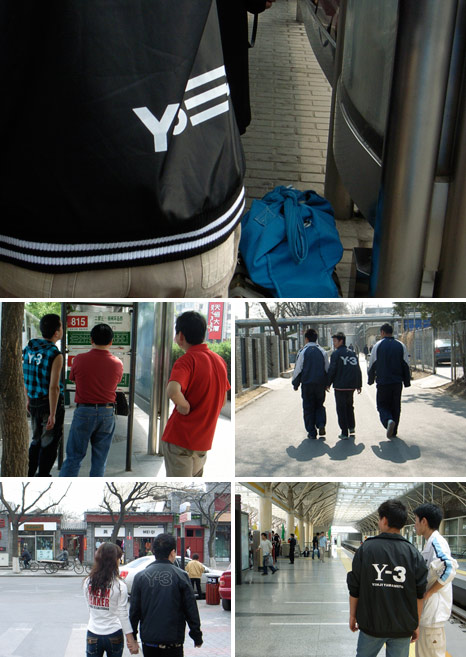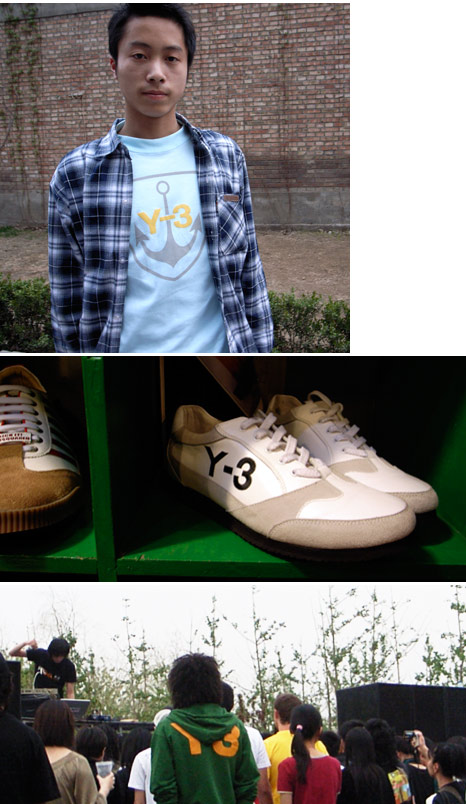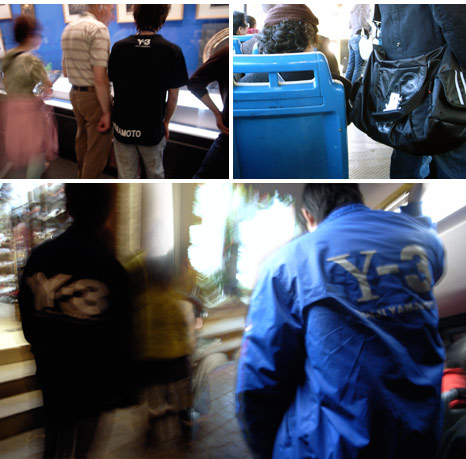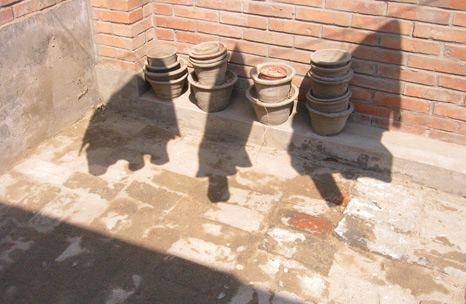today. you and we. happy birthday miss asuka
 a year passes – 誕生日お目出度う happy birthday, aka-chan 生日快乐 – the day whiles away… late afternoon, almost evening… more space these days for time, for thought for re-collecting, gathering, re-organizing, arranging, and you, ever-preparing for an unfinished moment, future, now in a box, the a-4 papers placed on top as they don’t fit, remembering in april to prepare for may, but when? after ten? after twenty? alas the archive! a year passes – 誕生日お目出度う happy birthday, aka-chan 生日快乐 – the day whiles away… a day with the memory of you and your birthday, perhaps not so different from the year before just that we didn’t record or we didn’t say. so today we learn new things, we capture video, eat a good crispy jian bing, we wear things long forgotten, we receive a phone call from japan, do grocery shopping, cycle to the village, we watch dance, we buy more food in the village, apples, bananas, pears, peanuts mixed with raisins, two filled pancakes and an egg pancake, and we search for a picture of a birthday cake we don’t find, only the not so good one where the candle wasn’t lit and more food is visible on the table, while searching we collect other images, we stop for a moment, we miss you – a year passes – 誕生日お目出度う happy birthday, aka-chan 生日快乐 – the day nears its end… miss asuka-chan, how was your day?
a year passes – 誕生日お目出度う happy birthday, aka-chan 生日快乐 – the day whiles away… late afternoon, almost evening… more space these days for time, for thought for re-collecting, gathering, re-organizing, arranging, and you, ever-preparing for an unfinished moment, future, now in a box, the a-4 papers placed on top as they don’t fit, remembering in april to prepare for may, but when? after ten? after twenty? alas the archive! a year passes – 誕生日お目出度う happy birthday, aka-chan 生日快乐 – the day whiles away… a day with the memory of you and your birthday, perhaps not so different from the year before just that we didn’t record or we didn’t say. so today we learn new things, we capture video, eat a good crispy jian bing, we wear things long forgotten, we receive a phone call from japan, do grocery shopping, cycle to the village, we watch dance, we buy more food in the village, apples, bananas, pears, peanuts mixed with raisins, two filled pancakes and an egg pancake, and we search for a picture of a birthday cake we don’t find, only the not so good one where the candle wasn’t lit and more food is visible on the table, while searching we collect other images, we stop for a moment, we miss you – a year passes – 誕生日お目出度う happy birthday, aka-chan 生日快乐 – the day nears its end… miss asuka-chan, how was your day?
installation, the morning after

![]()
As creators, we can say that there is an audience for our work, whereby “public” is both an excuse and a reason. And yet as creators within a social sphere, our unabashed ability to colonialise spaces, and even publics, actually distances us from any notion of real interaction rather than that of working context-specific, conscientiously and in cohesion with those collaborating with us.![]() In the example of the bi/tri-ennial, the clearest cut form of discourse seems to lie not within the vocabulary of the host city, not within the realm of “the work” and at times hardly even within the actual processes of production. As recently overheard from an independent curator about the opening night party of the 2007 Shenzhen-Hong Kong Biennale of Architecture and Urbanism, “Well, that’s what we came for.”
In the example of the bi/tri-ennial, the clearest cut form of discourse seems to lie not within the vocabulary of the host city, not within the realm of “the work” and at times hardly even within the actual processes of production. As recently overheard from an independent curator about the opening night party of the 2007 Shenzhen-Hong Kong Biennale of Architecture and Urbanism, “Well, that’s what we came for.”![]() Chief curator of the Biennale Ma Qingyun is at a loss. “But we worked so hard…”
Chief curator of the Biennale Ma Qingyun is at a loss. “But we worked so hard…”![]() The bi/tri-ennial are event-based phenomenona, as new technology, “our latest project”, and another friday night scene. Critical exchange, then, takes a cue, as a breather after all that hard work—-at bars, the after-parties and nestled within the snide comments made during other people’s speeches. It is hard to understand what sort of feedback and interaction one can stimulate or expect from an event involving a mass public audience. “I hope they’ll collect the press clippings,” says one architect in the back of the taxi, on the way to a bar after the after-party. And yes, these traditional forms of review may still be helpful and necessary within a larger system of creative production. But the formality of a critic’s theoretical opinion or a blogger’s on-the-scene action shots bely the stagnancy of the actuality. The sponsor hotel where most exhibitors stay always makes for a much more active and dynamic space than that last exhibition hall.
The bi/tri-ennial are event-based phenomenona, as new technology, “our latest project”, and another friday night scene. Critical exchange, then, takes a cue, as a breather after all that hard work—-at bars, the after-parties and nestled within the snide comments made during other people’s speeches. It is hard to understand what sort of feedback and interaction one can stimulate or expect from an event involving a mass public audience. “I hope they’ll collect the press clippings,” says one architect in the back of the taxi, on the way to a bar after the after-party. And yes, these traditional forms of review may still be helpful and necessary within a larger system of creative production. But the formality of a critic’s theoretical opinion or a blogger’s on-the-scene action shots bely the stagnancy of the actuality. The sponsor hotel where most exhibitors stay always makes for a much more active and dynamic space than that last exhibition hall.![]() Where are the relationships between work, audience and creator within the framework of the art event? Are we merely using ideas as a way of colonialising the spectacle space? Working carries over into presentation carries over into documentation carries over into publicisation. And where again is the space for the work? Somewhere between making contacts and trying to catch hold of the installation team to get the right equipment.
Where are the relationships between work, audience and creator within the framework of the art event? Are we merely using ideas as a way of colonialising the spectacle space? Working carries over into presentation carries over into documentation carries over into publicisation. And where again is the space for the work? Somewhere between making contacts and trying to catch hold of the installation team to get the right equipment.
![]() This is not meant to bemoan the poor artist who tries to be simultaneously active in all of these areas of art production. Nor can we blame the event structure alone. But is it naïve to still long for project-based work that does not neglect the need for post-planning, responsibility and respect for the other?
This is not meant to bemoan the poor artist who tries to be simultaneously active in all of these areas of art production. Nor can we blame the event structure alone. But is it naïve to still long for project-based work that does not neglect the need for post-planning, responsibility and respect for the other?![]() Would it be possible to leave an event of this kind without a feeling of the morning-after?
Would it be possible to leave an event of this kind without a feeling of the morning-after?
your name is not here 你的名字不在
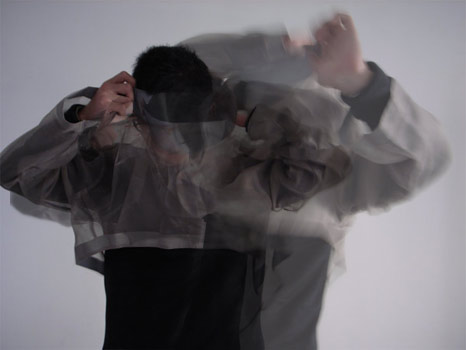 秘秘的 what is a bit hidden these days
秘秘的 what is a bit hidden these days
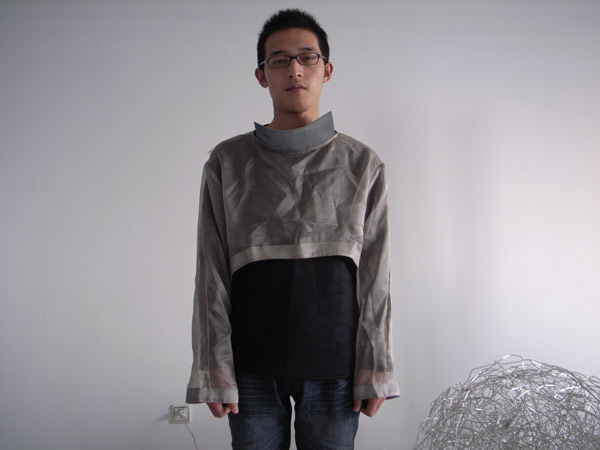 感谢… but thank you…[taken from DEADEND 总站 project | new uniforms for pedicab drivers 三轮车新工服, Shenzhen-Hong Biennale of Architecture & Urbanism, 深圳香港城市建筑双城双年展, December 2007, 2007年12月 …hk-丫-BAO]
感谢… but thank you…[taken from DEADEND 总站 project | new uniforms for pedicab drivers 三轮车新工服, Shenzhen-Hong Biennale of Architecture & Urbanism, 深圳香港城市建筑双城双年展, December 2007, 2007年12月 …hk-丫-BAO]
acommuniqué number one :: hiroaki
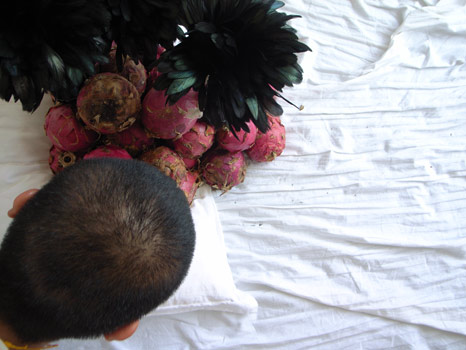
![]()
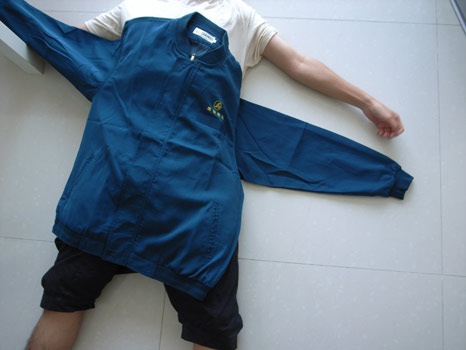
![]()

HK:丫:HK:丫:HK:丫: vitamin space studio behind the star city hotel, guangzhou sunday 15:00, before catching another flight. a conversation with 大明 turns out to be an exercise in grasping. As in holding on, we talked about it for so long, and in doing, he slapped at the computer and said “i hate this thing”, footage, a semantic exercise. It is not possible to ascertain whether one would have been more keen to remember naturally without it, as often suspected, but now all that is left are the remnants of feeling and machines. and oh yes the sparkle in his eyes. [PUBLIC BUS – a butterfly moving back and forth between the driver and the passengers seated in the front seats for the elderly or handicapped] one may have bored already with all that talk of archiving and documentation (“don’t say that! it’s something i’m interested in!”), but in the presence of the oversignaled conversation, or a small pale blue notebook with careful letters, “home for lost ideas”, it became interesting to juxtapose the falsely alluded stability of ARCHIVE with MOBILITY (the more cities we will meet in…) [MOBILE TELEPHONE picks up – “I’m driving, I’ll call you later.”] An illusion, yes—-the restaurateurs sweat, i pore over how to make more space on the hard drive—-for the reels will always start to decay, the paper yellows and becomes brittle or moist with mildew, the archived item, like memory, takes a half-life, conscious of what it once was, now less than. Temporal processes (cooking, growing, getting ready) bear a physicality. These, yes, are continuities. The act of documenting disPLACEs the documented object from its subject, in terms of the mediated action, reality from its image or copy, and its positioning within the consciousness of the documentary maker. [TAXI – after a long silence, he asks, “do people pick their nose in Beijing?”] If we are to keep the archive moving, imagine the scenario of various speeds traveling simultaneously side by side, the tour de france, the armoured truck. it was the memory that caught up with us, and that idea, it seems somehow fantastic, slips into the corner of your vision, up through to the tip of your tongue, already in momentum, such that, as the fear goes, if i were to stop, it would keep going, taking its own trajectory, its own lifehood. they were never yours or mine, and we are merely trying, you perhaps just a bit more gracefully, to keep up. [recreation of SUBWAY – ]“today on subway, she and i were talking about how we want to print our ribbons, with print on one end of ribbon or both. and i said that to put it on both would be more balanced.” “for sausage?” “yes. and she said, ‘different ideas of balance…’ we see the world in such different ways. she felt that if the print were all on one side, then the fullness would balance with the emptiness on the other side. and i said that’s not balance, that’s contrast. but that contrast creates balance for her, like positive and negative.” “yes, but contrast results to balance in the middle, no?” “and you know there is no original word for ‘logic’ in chinese. and i thought this amazing.” “you told me. oh, many japanese people here.” “the word is from english. but maybe it’s more true. because to think of logic is a kind of objectivism, maybe, which i should not forget is all too deceiving. i envy her a lot.” “oh. why.” “what do you mean about balancing in the middle?” “i guess what you were saying about outweighing each other.” “what was i saying about outweighing? what do you mean? trying to understand. …would like to understand something today.” “full and empty, positive and negative are not balanced, not symmetrical but the outcome in the center is 0. not sure if that makes sense…” “that’s a kind of balance, too, no?” “yes, so maybe hers is a kind of balance, too.” “i mean, i see what you mean in the sense that it’s also a kind of annihilation. and this is perfectly her, yes. it is a kind of balance, and that was a nice to see.” “a balance of difference and a balance of sameness.” no, grasping was not the point. and yet if not, if there were no continuity in these relations, no sense of fulfilling, then do processes become reduced to mere transaction? does the momentary require a sense of place any more or less than the sedentary? would it be important, to imagine for all these words passed between, a compiled identity of all the possible words of a certain past and an uncertain future? and if we were to do so, would i be really able to see the world as you do, and would i stop moving?
Posted by 丫 | more »it’s only a small gesture 。只是一个小小的手势 。‘t is slechts een klein gebaar
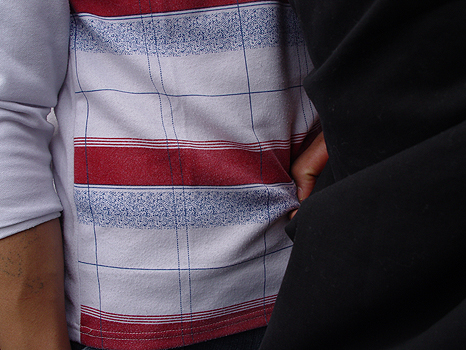 .
.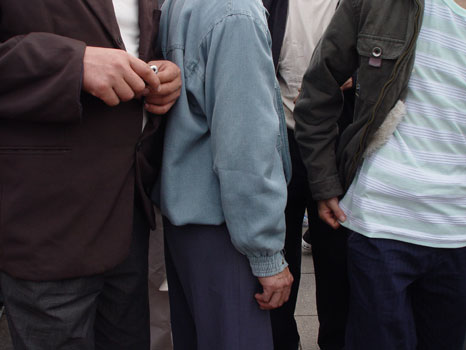 .
.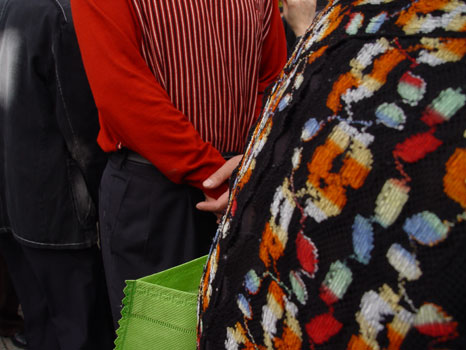 .
.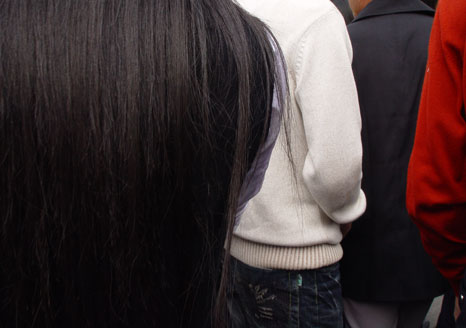 .
.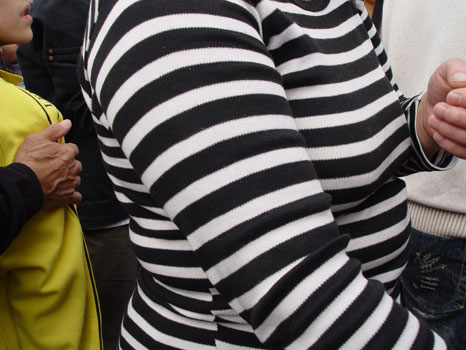 .
.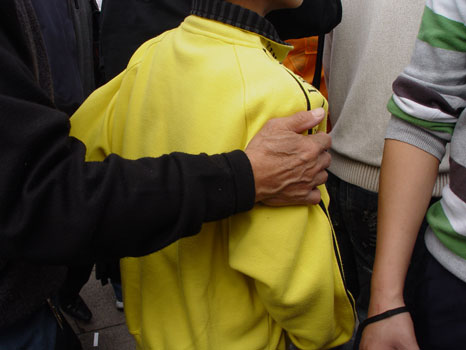 .
.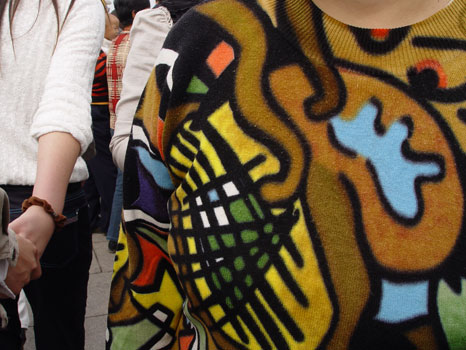 .
.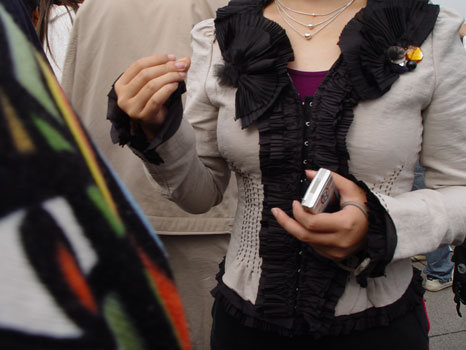 .
.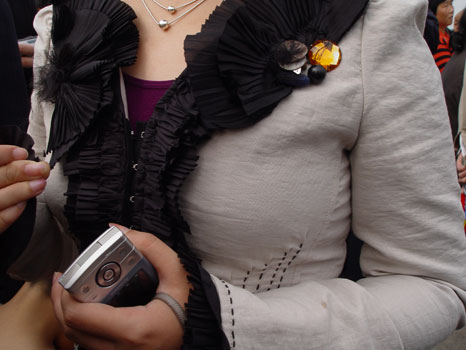 .
.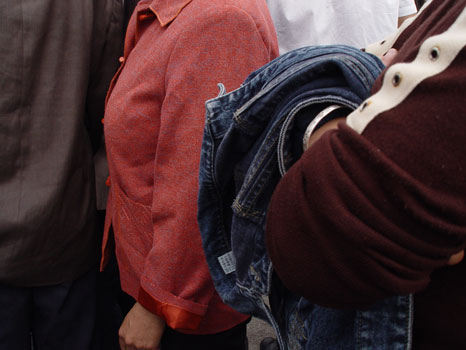 .
.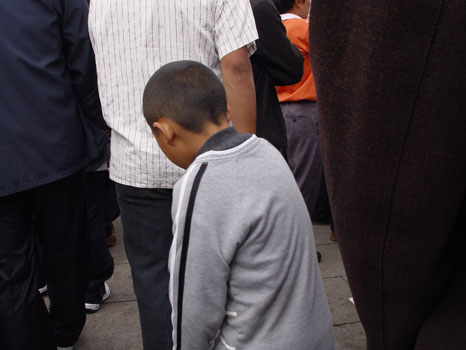 .
.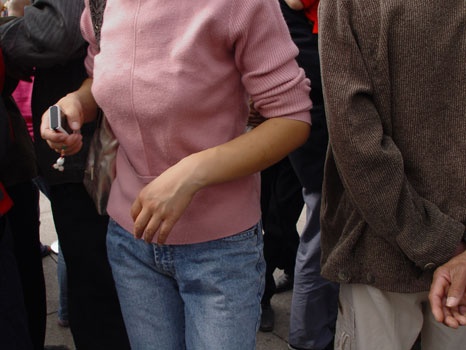 .
.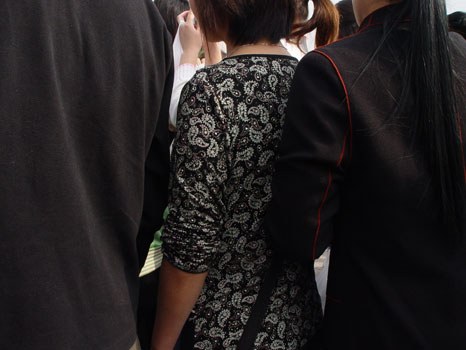 .
.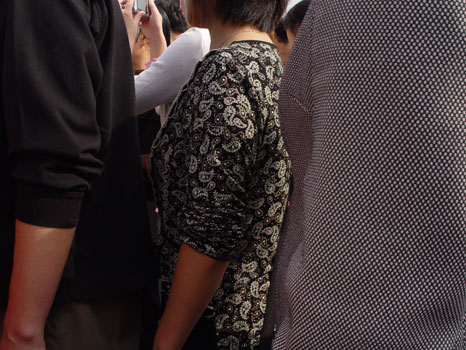 .
.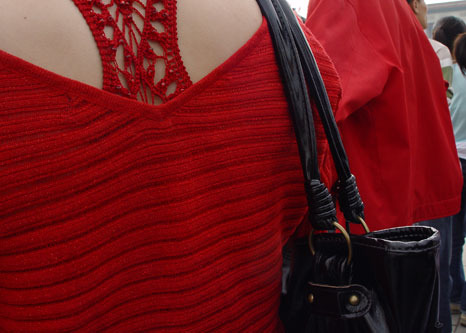 .
.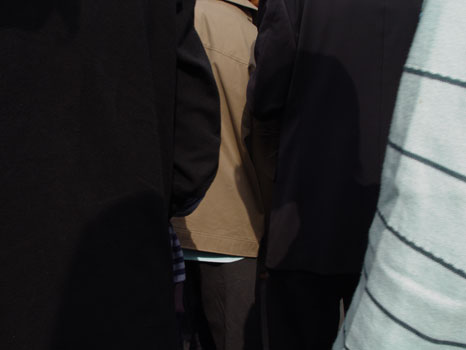 .
.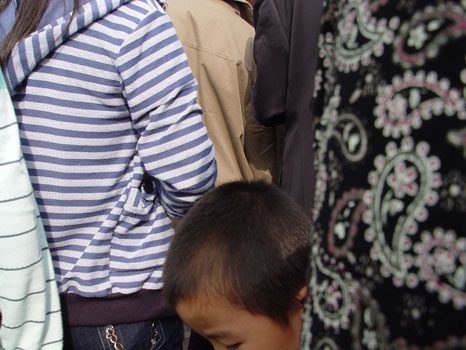 .
.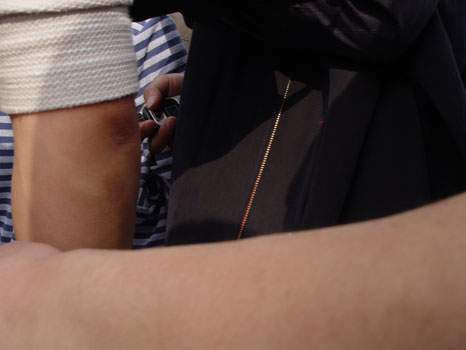 .
.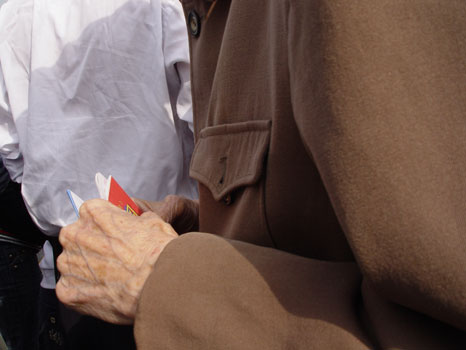 .
.
